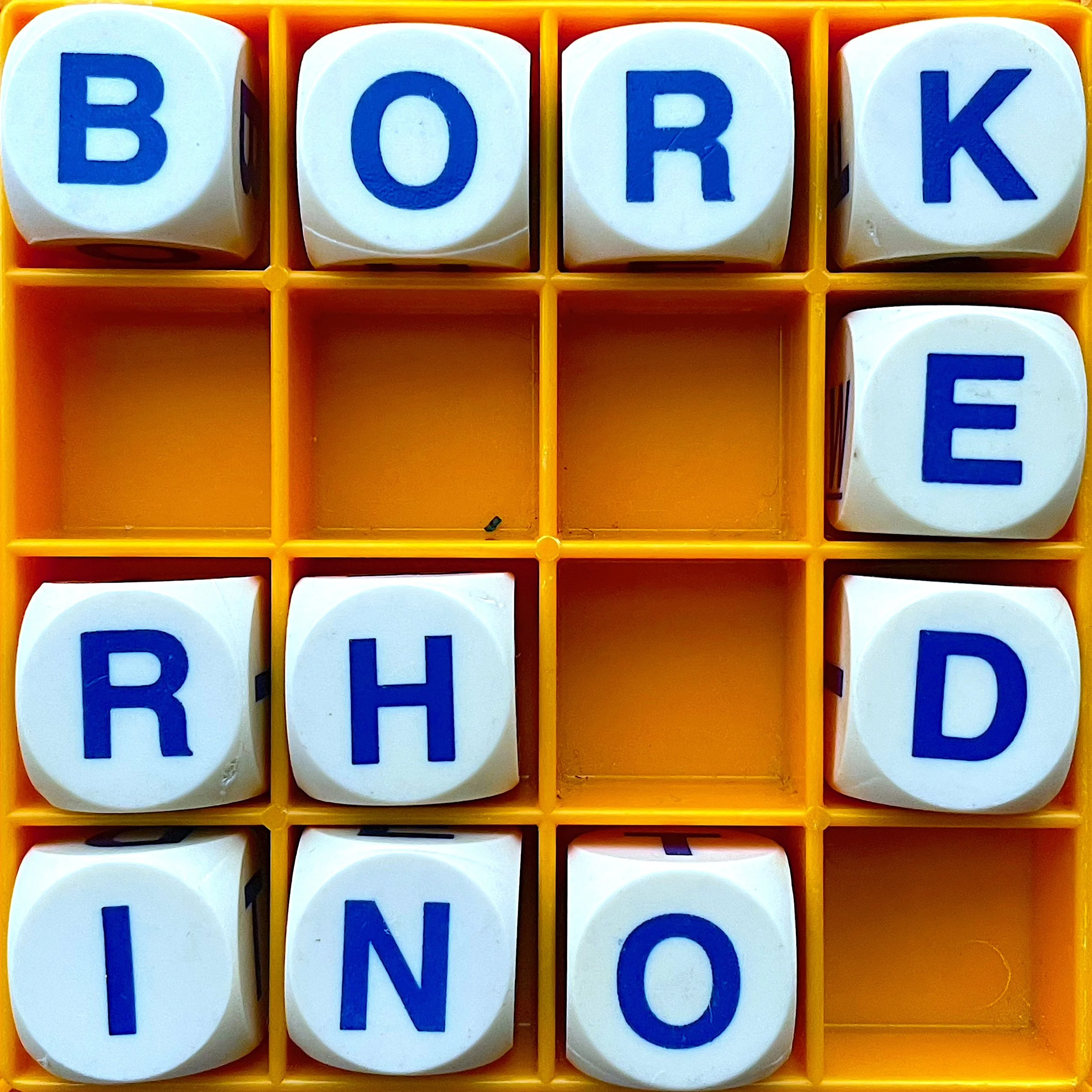Provoked by current events, we've got three political eponyms for turmoiled times. Get ready for explosives, presidential pigs, Supreme Court scrapping, and wronged rhinos.
Read moreAllusionist 153. In Character
Chinese is one of the oldest still-spoken languages in the world. But when technologies arrived like telegraphy and computing, designed with the Roman alphabet in mind, if Chinese wanted to be able to participate then it had to choose between adapting, or paying a heavy price. And sometimes both were inevitable. Jing Tsu, author of Kingdom of Characters: The Language Revolution that Made China Modern, recounts how Chinese contended with obstacles like alphabetisation, Romanisation and standardisation.
Read moreAllusionist 89. WPM
This is a story of feats of speed and endurance, of record-breakers, of champions… Typing champions.
Read moreAllusionist 25: Toki Pona
iTUNES • RSS • MP3
There’s a language which is said to be the smallest language in the world. It has around 123 words, five vowels, nine consonants, and apparently you can become fluent in it with around 30 hours’ study. It was invented by linguist Sonja Lang in 2001, and it’s called Toki Pona.
And Nate DiMeo, from the Memory Palace, decided we should learn it together.
FURTHER READING:
tokipona.org is your first stop for Toki Pona information, such as Sonja Lang's book and the Facebook group.
This is the article that first piqued Nate's and my interest in Toki Pona. I also enjoyed reading about this two-day Toki Pona learning binge.
A Finnish psychiatrist experimented with getting his patients to record their thoughts in Toki Pona every day.
Hey, linguistic size queens: here's a piece comparing number of words in different languages, and here are some stats for you.
I need to read In the Land of Invented Languages by Arika Okrent, who appeared in this early episode of 99% Invisible about Esperanto.
There are a lot more invented languages; here are a few mentioned in this episode: Kēlen, Ithkuil, Blissymbols, Lojban, Klingon, Elvish, Na'vi...
RANDOMLY SELECTED WORD FROM THE DICTIONARY:
kobold
CREDITS:
Nate DiMeo makes the beautiful podcast The Memory Palace thememorypalace.us.
This episode was produced by me, Helen Zaltzman. Thanks to Eleanor McDowall.
Martin Austwick provided all the music apart from the instrumental version of Survivor's 'Eye of the Tiger'.
Communicate with me minimalistically at facebook.com/allusionistshow, twitter.com/allusionistshow and twitter.com/helenzaltzman.
- HZ
Allusionist 24: Spill Your Guts
iTUNES • RSS • MP3
It's cathartic; it's useful historical records; and it might help you behave better on public transport. Neil Katcher and Dave Nadelberg from Mortified discuss the art and practice of keeping a diary.
ADDITIONAL MATERIALS:
This website has a fair amount of information about Samuel Pepys, including his diary entries describing the Plague and the Great Fire of London - and some of the entries he wrote in code because they're a bit saucy.
Pepys wrote his diary in shorthand, so snoopers couldn't understand it. Read a translation at Project Gutenberg.
Anne Frank, meanwhile, edited a version of her diary for possible public consumption, which was the one published in 1947. The longer, private version was recently published.
Mortification comes in many forms. All of which are funnier when they happened to someone else.
My friend Jo Neary has been keeping an illustrated diary for decades. Occasionally, she shares some pages online, to my delight.
Which of these medical acronyms will follow in LOL's footsteps and be in common use in textspeak within the next 30 years?
Having trouble translating DAMHIKT, UDS or POTF? Acronym Finder is here to help.
RANDOMLY SELECTED WORD FROM THE DICTIONARY:
horst
CREDITS:
Dave Nadelberg and Neil Katcher run Mortified. It's a weekly podcast, a stage show in many cities around the world, a documentary, a TV series, and books; find all these Mortified things at getmortified.com.
This episode was produced by me, Helen Zaltzman. Thanks for the advice, Eleanor McDowall and Martin Austwick (who also provided all the music).
Communicate with me publicly at facebook.com/allusionistshow, twitter.com/allusionistshow and twitter.com/helenzaltzman.
- HZ
Allusionist 17: Fix part I
iTUNES • RSS • MP3
The English language is a mess. And if you don't like it, what are you going to do about it - fix it? Good luck with that.
In the early 18th century, a movement of grammarians and authors wanted to set up an official authority to regulate English, like French had in the Academie Francaise. But is trying to fix a language a good move? Linguists Liv Walsh and Thomas Godard weigh up the evidence.
Apologies in advance, pedants: this episode may contain some truths you* don't want to hear.
*we.
READING MATTER:
Some of the audio is a bit unclear, so here's a transcript of the show.
Find out about the Academie Francaise, including what you'll need to do if you want to become one of Les Immortels. (You'll probably have to kill one of the current ones.)
Here is Jonathan Swift’s language proposal and here is his Modest Proposal.
This article summarises how most linguistic rules are just busking it; it also links to a 1909 paper about the subject that doesn't mess around.
Thomas Godard recommends reading Fixing English by Anne Curzan and The Bishop's Grammar by Ingrid Tieken-Boon van Ostade, and listening to PRI's The World in Words.
The purists among you may wish to seek refuge with the Queen's English Society.
RANDOMLY SELECTED WORD FROM THE DICTIONARY:
toxophilite
CREDITS:
Thanks very much to Dr Liv Walsh and Thomas Godard, and to Dr Rachele De Felice who helped me find them.
This episode was produced by me, Helen Zaltzman. All the music is by Martin Austwick. Hear and/or download more - WITH LYRICS! - at thesoundoftheladies.bandcamp.com.
Say hello to me at facebook.com/allusionistshow, twitter.com/allusionistshow and twitter.com/helenzaltzman.









